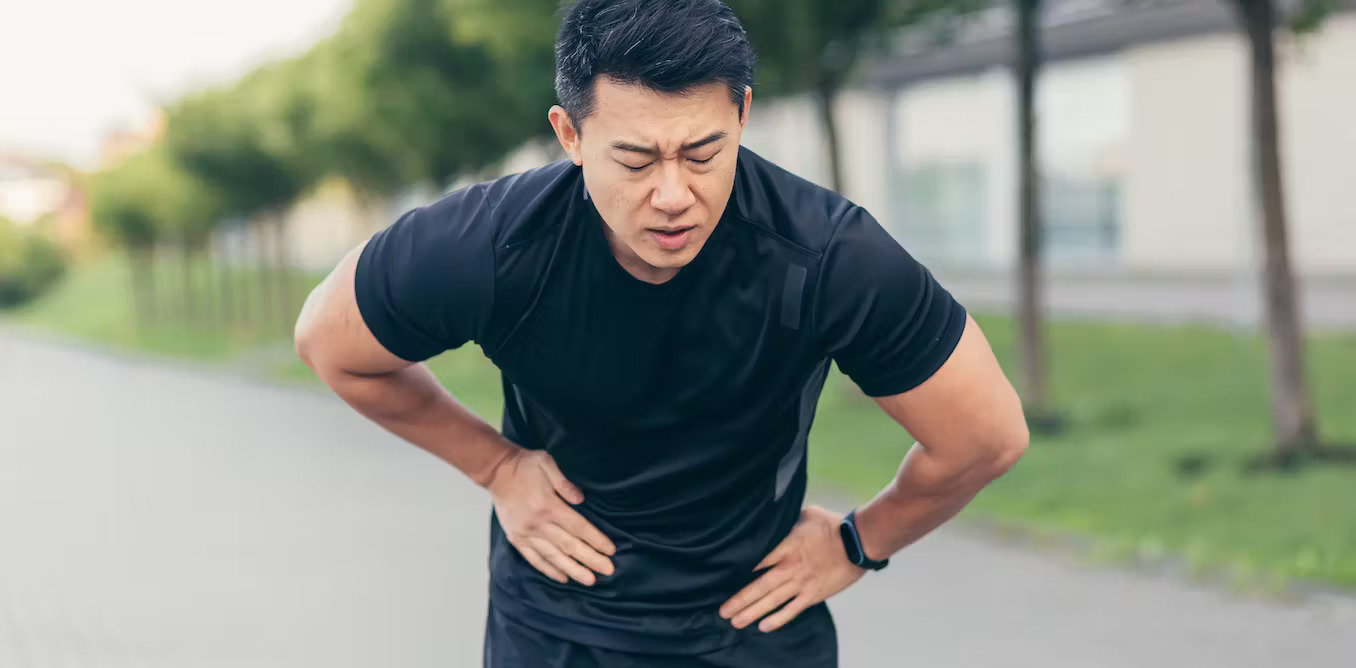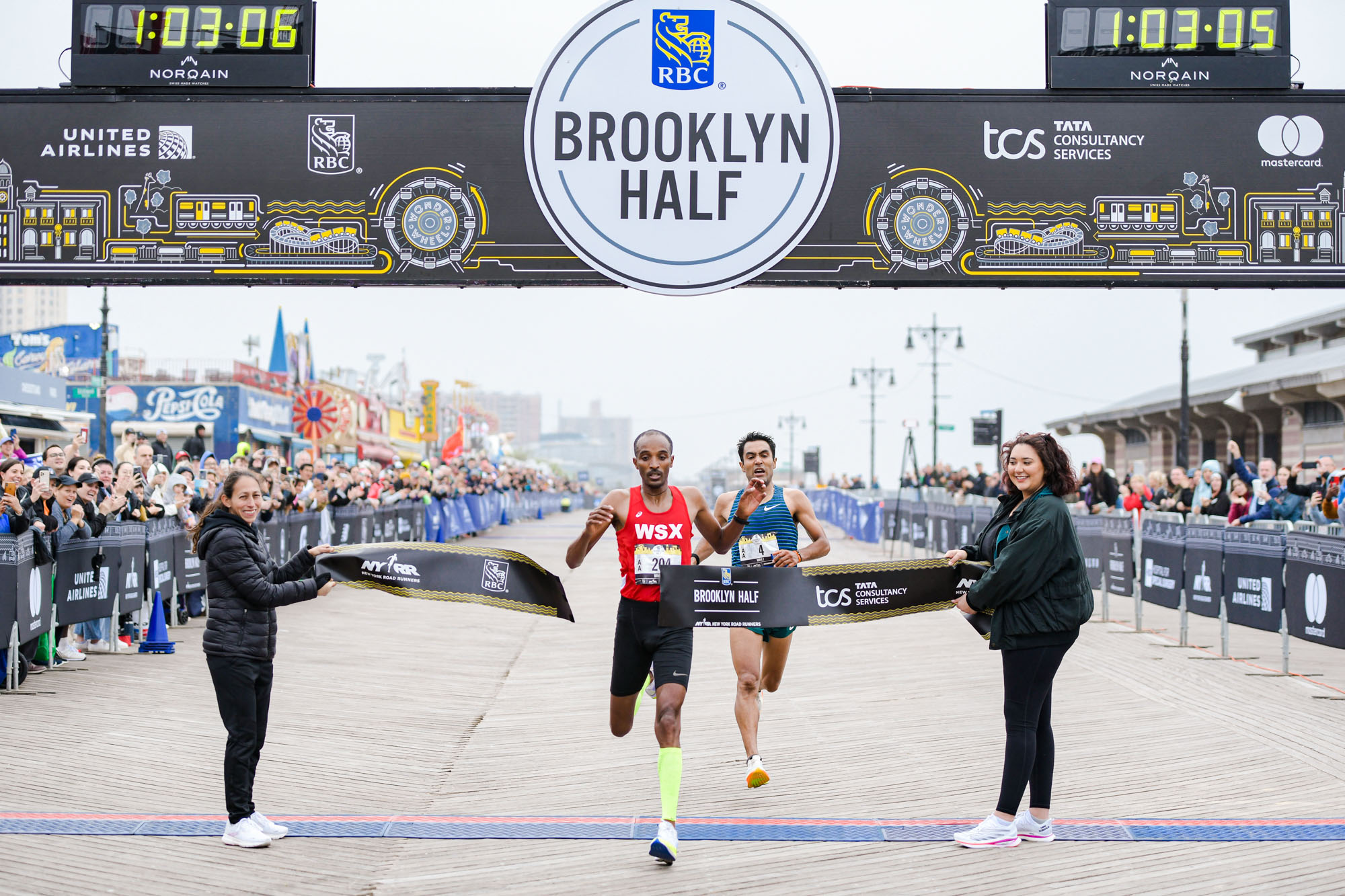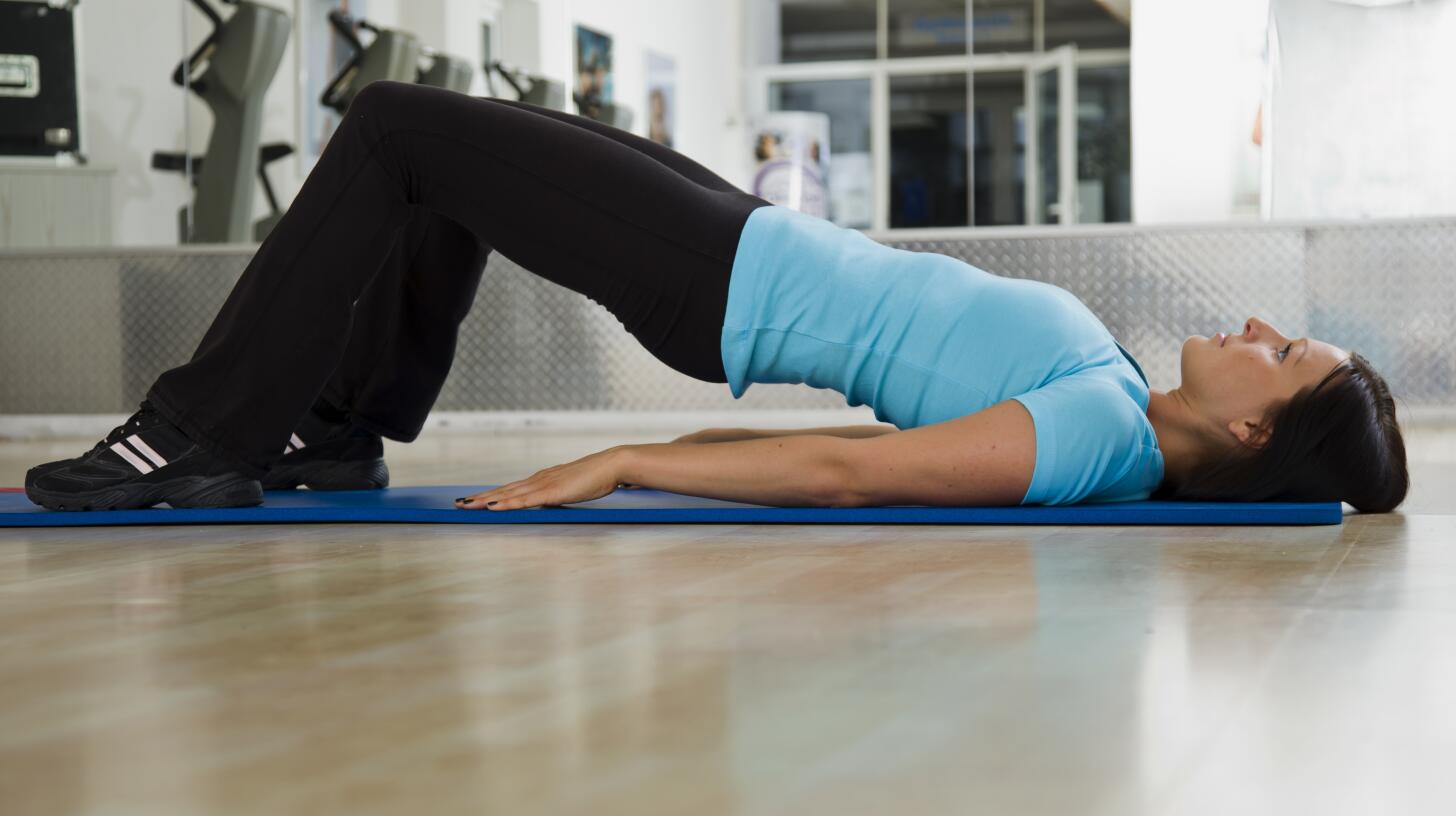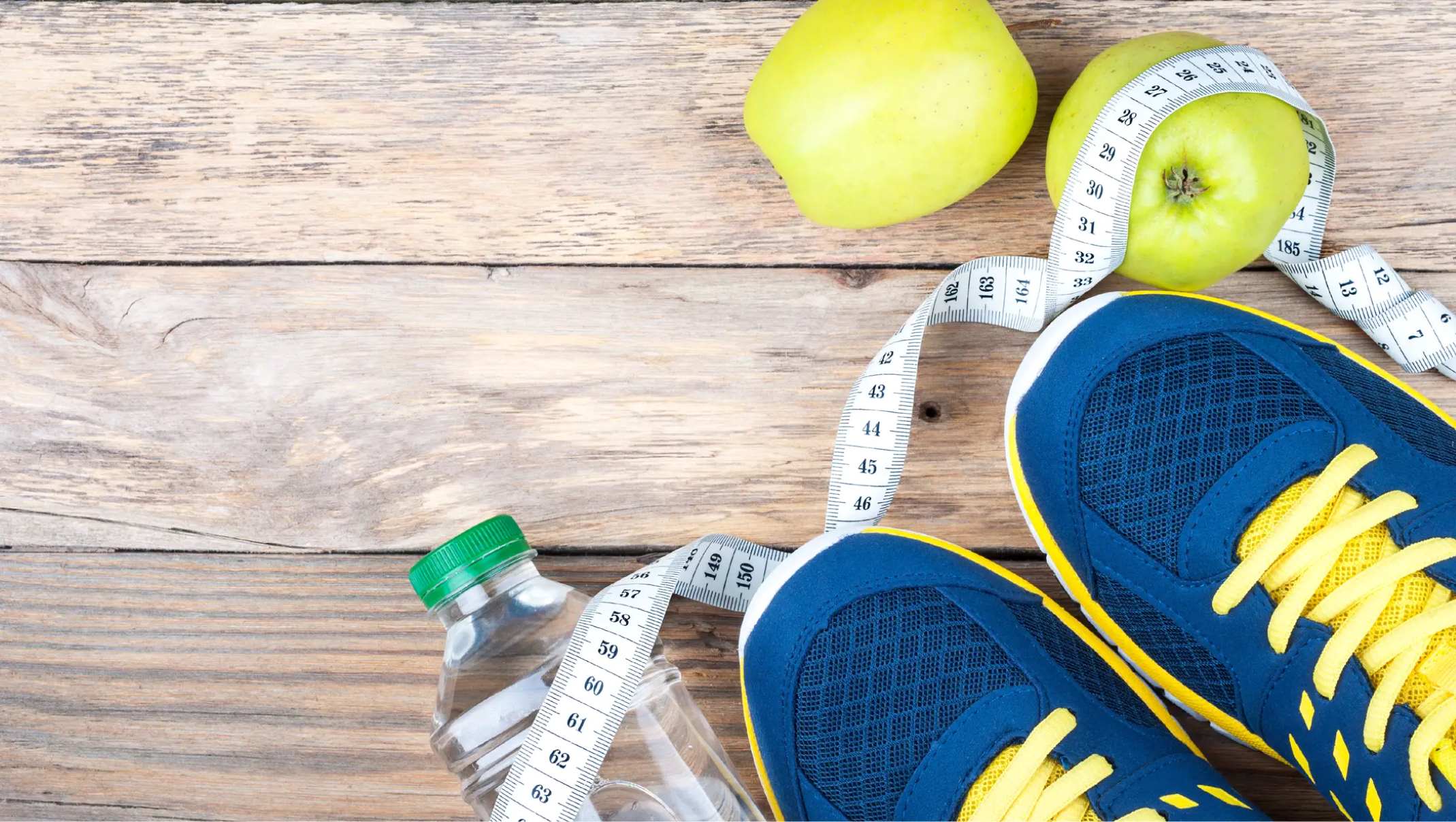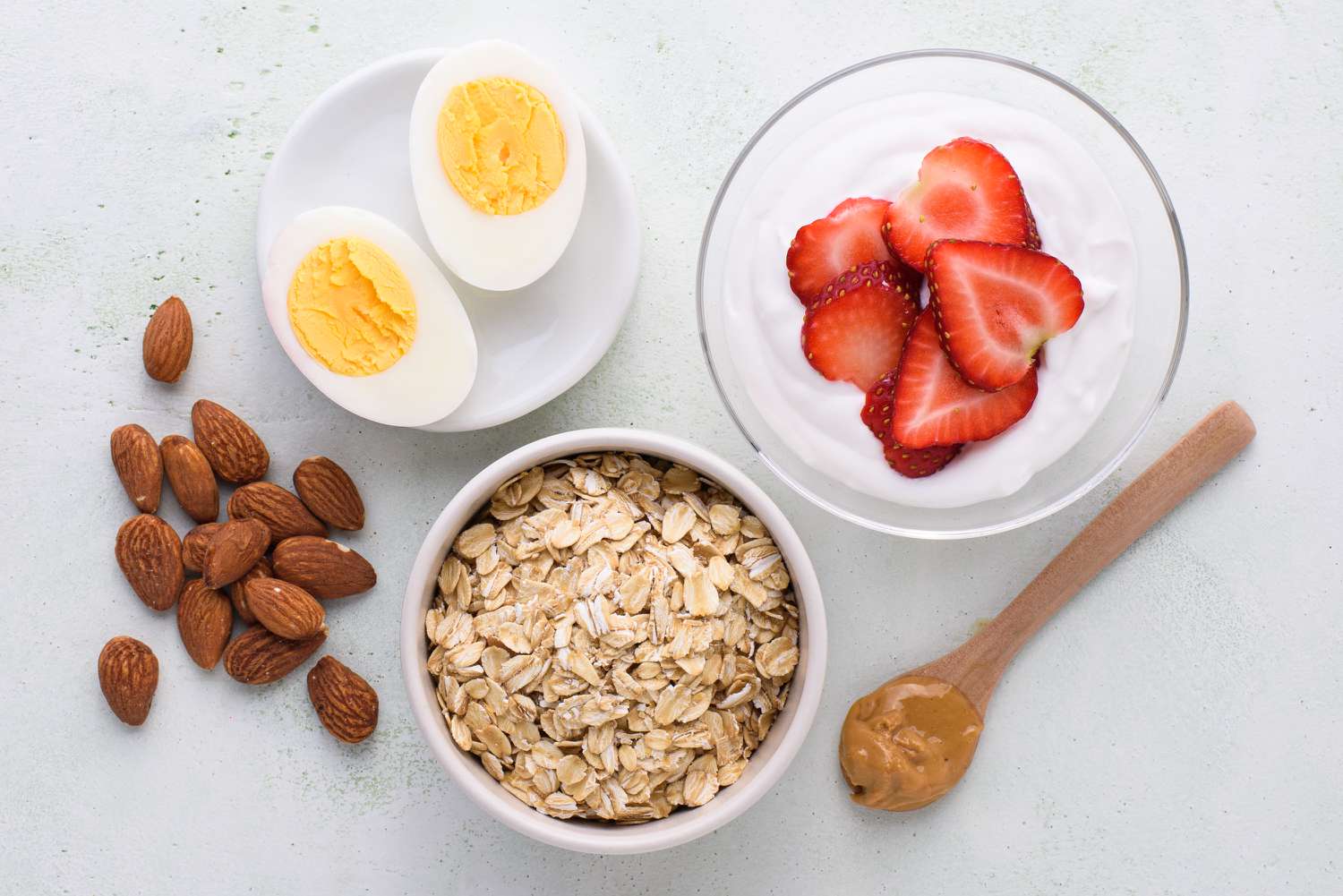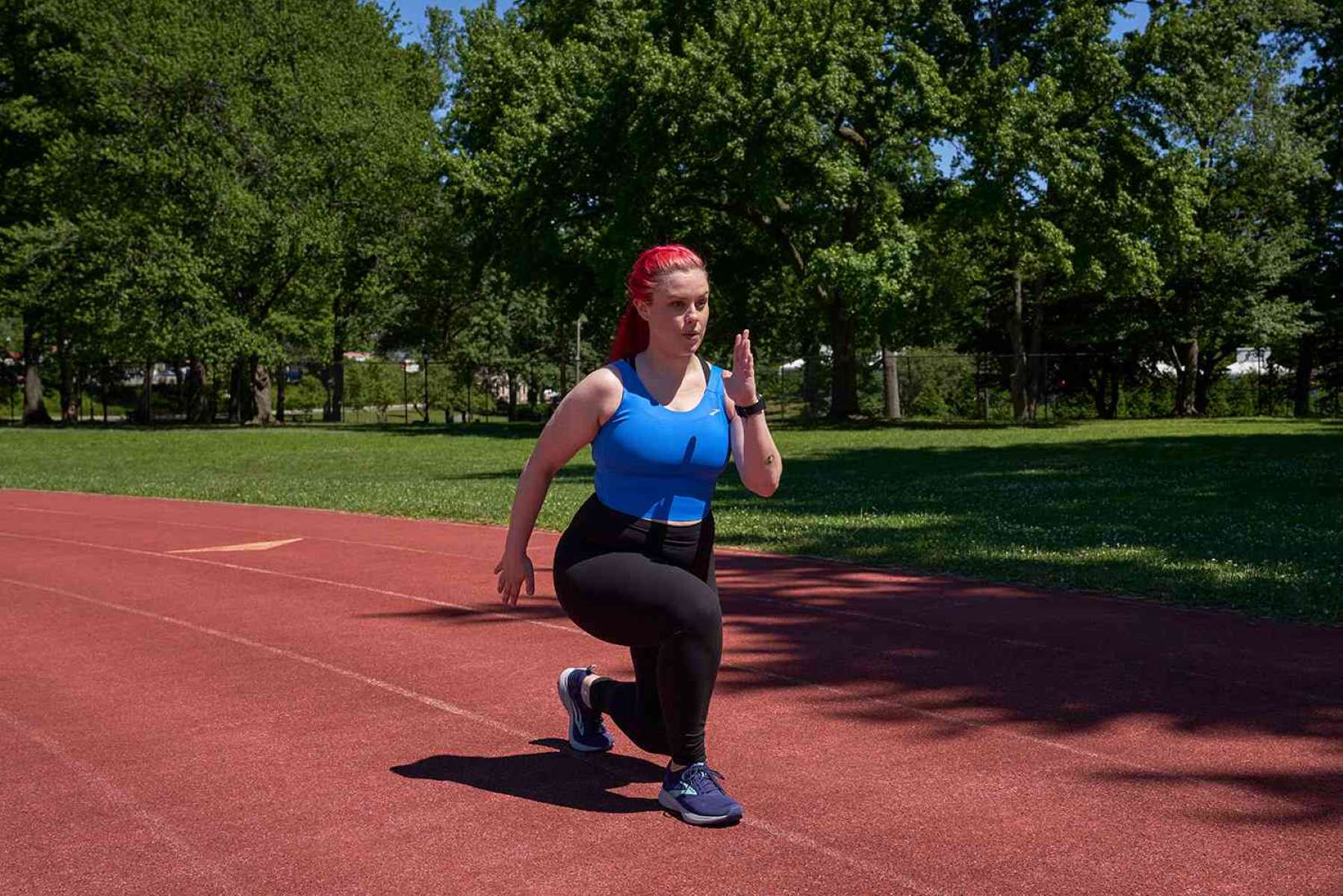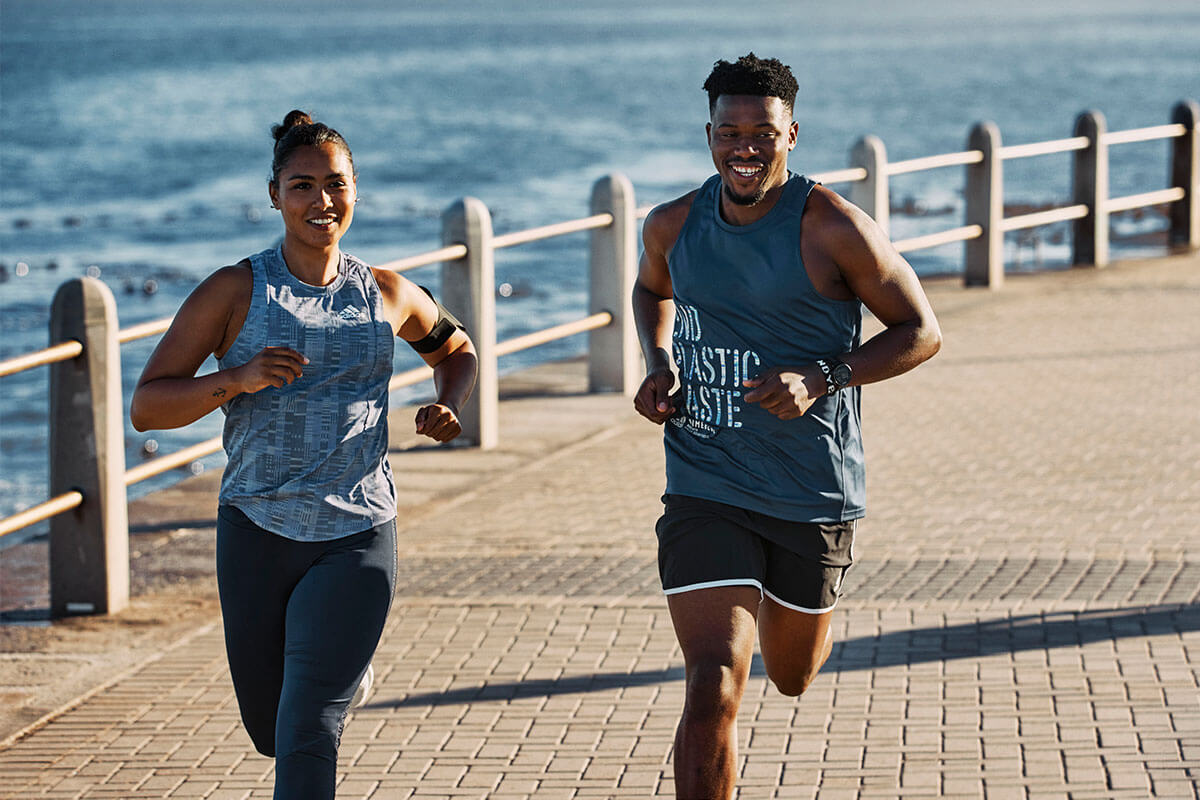

Featured
How Soon Should I Eat After A Workout
Modified: August 19, 2023
Discover the recommended timing for post-workout meals with our featured article, "How Soon Should I Eat After a Workout." Enhance your fitness journey with expert advice.
Introduction
Eating after a workout is essential for optimal recovery and muscle growth. While many people focus on what to eat before a workout to fuel their performance, the importance of post-workout nutrition should not be underestimated. When you exercise, your muscles use up stored glycogen as a source of energy. Additionally, your muscle fibers undergo microscopic damage, which needs to be repaired to promote muscle growth. Proper post-workout nutrition plays a key role in replenishing glycogen stores, facilitating muscle repair and growth, and enhancing recovery.
During a workout, your body goes through a catabolic state, breaking down muscle tissue. To shift your body into an anabolic state, where muscle growth and repair can occur, you need to provide it with the necessary nutrients. This is why the post-workout period is often referred to as the “anabolic window” – a crucial time where your muscles are primed to absorb nutrients most efficiently.
The timing of your post-workout meal is a critical factor in maximizing the benefits of your workout. Consuming the right nutrients within the appropriate window of opportunity can greatly enhance your body’s ability to repair muscle tissue and replenish energy stores. Additionally, it can help reduce muscle soreness and promote faster recovery.
In this article, we will delve into the importance of post-workout nutrition and explore the optimal timing and composition of your post-workout meal. We will also discuss the role of hydration and other factors that can influence your post-workout nutrition strategy. By understanding the principles behind post-workout nutrition, you can make informed choices to support your fitness goals and optimize your recovery.
Importance of Post-Workout Nutrition
Post-workout nutrition plays a crucial role in optimizing recovery and maximizing the benefits of your training sessions. Here are some key reasons why it’s important to prioritize your nutrition after a workout:
- Muscle Recovery and Repair: During exercise, muscle fibers undergo microscopic damage, leading to muscle protein breakdown. Consuming a post-workout meal that is rich in protein provides the essential amino acids necessary for muscle repair and growth. Adequate protein intake stimulates muscle protein synthesis, helping to restore and build muscle tissue.
- Glycogen Replenishment: Your muscles rely on glycogen stores as a primary source of energy during intense workouts. Consuming carbohydrates after exercise helps replenish these glycogen stores, ensuring that your muscles have an adequate fuel supply for your next training session. This is especially important for athletes or individuals engaging in prolonged or intense exercise.
- Enhanced Muscle Growth: The combination of protein and carbohydrates in your post-workout meal promotes an increase in insulin levels. Insulin is a hormone that plays a critical role in nutrient uptake by cells, including muscle cells. Higher insulin levels facilitate the transport of amino acids and glucose into muscle cells, fostering muscle repair and growth.
- Prevention of Muscle Protein Breakdown: Consuming a protein-rich post-workout meal helps prevent muscle protein breakdown or muscle wasting. This is particularly important if you’re in a calorie deficit or undergoing periods of intense training. Supplying your body with a readily available protein source after a workout can help preserve muscle mass.
- Reduced Muscle Soreness: Intense exercise can often lead to muscle soreness and inflammation. Proper post-workout nutrition, including anti-inflammatory foods, can help reduce muscle soreness and promote faster recovery, allowing you to perform better in subsequent workouts.
By focusing on post-workout nutrition, you are providing your body with the tools it needs to repair, recover, and grow stronger. Neglecting this crucial aspect of your fitness routine can hinder your progress and make it harder to achieve your fitness goals.
The Window of Opportunity
The “window of opportunity,” also known as the “anabolic window,” refers to the period of time immediately following your workout when your body is most receptive to nutrient absorption. This is the optimal time to consume your post-workout meal to maximize the benefits of your training session. While there is some debate about the exact length of this window, it is generally believed to last anywhere from 30 minutes to two hours after exercise.
During this window, your muscles are more insulin sensitive, meaning they are better able to take in and utilize nutrients. Insulin is a hormone that plays a crucial role in transporting glucose, amino acids, and other nutrients into muscle cells for energy production, repair, and growth. By consuming the right nutrients within this timeframe, you can enhance muscle protein synthesis, glycogen replenishment, and overall recovery.
Research suggests that delaying post-workout nutrition by several hours can have a negative impact on muscle protein synthesis, glycogen resynthesis, and recovery. Therefore, it is recommended to prioritize your post-workout meal and aim to consume it as soon as possible after your training session.
It’s important to note that the window of opportunity is not a strict deadline where all benefits are lost if you miss it by a few minutes. Rather, it signifies that there is an optimal timeframe in which your body can efficiently utilize nutrients. Outside of this window, your body will still benefit from proper nutrition, but the potential gains may be slightly reduced.
Keep in mind that individual factors, such as the intensity and duration of your workout, your overall diet, and your specific goals, may influence the importance and duration of the window of opportunity for you. However, as a general guideline, aim to consume your post-workout meal within 30 minutes to two hours after your workout to take advantage of this valuable period.
Timing of Post-Workout Meal
The timing of your post-workout meal is a critical aspect of optimizing recovery and maximizing the benefits of your workout. While the exact timing may vary depending on individual factors and preferences, there are some general guidelines to consider.
As mentioned earlier, the window of opportunity for post-workout nutrition is believed to last anywhere from 30 minutes to two hours after your workout. During this time, your body is primed to absorb nutrients and initiate the recovery process. Therefore, it’s important to aim to consume your post-workout meal within this timeframe.
If possible, it is ideal to have a small snack or a protein shake immediately after your workout to kick-start the recovery process. This can provide a quick supply of nutrients to your muscles and begin the repair and growth process right away.
Within the next couple of hours, it is advisable to have a balanced meal that includes both protein and carbohydrates. This combination is important for replenishing glycogen stores, stimulating muscle protein synthesis, and promoting overall recovery. Including a source of high-quality protein, such as lean chicken, fish, tofu, or Greek yogurt, along with complex carbohydrates like whole grains, fruits, and vegetables, can provide the necessary nutrients for optimal recovery.
Keep in mind that the timing of your post-workout meal may also depend on your personal schedule and preferences. If you are unable to eat immediately after your workout, it is still beneficial to have a meal as soon as possible within the window of opportunity.
Additionally, if you have multiple workout sessions scheduled within a day or you are engaging in prolonged periods of intense exercise, it is important to properly refuel between sessions. In these cases, having a post-workout meal or snack that provides a balance of protein and carbohydrates becomes even more crucial for optimal performance and recovery.
Remember, the timing of your post-workout meal is just as important as the composition of the meal itself. Strive to prioritize your nutrition within the window of opportunity to enhance your recovery and support your fitness goals.
Macronutrient Composition of Post-Workout Meal
The macronutrient composition of your post-workout meal is crucial for providing your body with the necessary nutrients to support recovery, muscle growth, and glycogen replenishment. Here’s a breakdown of the key macronutrients to include in your post-workout meal:
- Protein: Including a source of high-quality protein in your post-workout meal is essential for muscle repair and growth. Protein provides the building blocks (amino acids) needed to rebuild and strengthen muscles that have been stressed during exercise. Aim to consume around 20-30 grams of protein within your post-workout meal. Good sources of protein include chicken, fish, lean meats, eggs, dairy products, legumes, and plant-based protein alternatives such as tofu or tempeh.
- Carbohydrates: Consuming carbohydrates after a workout helps replenish glycogen stores, the primary source of energy for your muscles during exercise. Including carbohydrates in your post-workout meal stimulates insulin release, which aids in nutrient uptake by muscle cells. Opt for complex carbohydrates like whole grains, fruits, and vegetables, as they provide a steady release of energy and essential nutrients. Aim for a carbohydrate intake of 0.5-0.7 grams per pound of body weight within your post-workout meal.
- Fats: While it’s important to include healthy fats in your overall diet, it is advisable to keep the fat content of your post-workout meal relatively low. High-fat foods can slow down digestion, which may hinder the absorption of proteins and carbohydrates needed for optimal recovery. However, a small amount of healthy fats from sources like nuts, seeds, avocados, or olive oil can be included to add flavor and satiety to your meal.
- Hydration: Hydration is another important aspect of post-workout nutrition. During exercise, you lose fluids through sweating, and adequate hydration is crucial for optimal recovery and performance. Alongside your post-workout meal, drink plenty of water or choose a hydrating beverage such as coconut water or a sports drink that replenishes electrolytes lost during exercise.
It’s vital to adjust your macronutrient intake based on your individual goals, preferences, and dietary needs. If you are following a specific diet, such as a vegetarian or vegan diet, ensure that you include plant-based sources of protein in your post-workout meal. Similarly, if you have any dietary restrictions or allergies, opt for suitable alternatives that meet your nutritional requirements.
Ultimately, the macronutrient composition of your post-workout meal should include a balance of protein and carbohydrates to support muscle repair, glycogen replenishment, and overall recovery. Stay mindful of your overall daily calorie intake and aim to make nutritious food choices that align with your fitness goals.
Hydration after a Workout
Proper hydration is crucial for overall health and performance, especially after a workout. When you exercise, your body loses fluids through sweat, which can lead to dehydration if not replenished. Hydration plays a vital role in supporting optimal recovery and performance. Here’s why it’s essential to prioritize hydration after a workout:
- Replenish Fluid Loss: During exercise, you can lose a significant amount of fluid through sweat, leading to dehydration. Rehydrating after a workout helps restore fluid balance in your body. Adequate hydration supports normal bodily functions, including nutrient transportation, temperature regulation, and joint lubrication.
- Promote Muscle Recovery: Proper hydration is essential for optimal muscle recovery. It helps flush out metabolic waste products and promotes efficient nutrient delivery to your muscles. Good hydration can also reduce muscle soreness and cramping, ensuring you recover more quickly for your next workout.
- Restore Electrolyte Balance: Electrolytes, such as sodium, potassium, magnesium, and chloride, are essential minerals that help maintain fluid balance and proper muscle function. Sweating during exercise can lead to an imbalance in electrolyte levels. Replenishing these electrolytes through hydration helps restore balance and supports optimal performance.
- Enhance Performance: Dehydration can negatively impact your physical and mental performance. It can lead to fatigue, decreased endurance, decreased strength, and impaired cognitive function. Staying hydrated after a workout improves energy levels, focus, and overall performance in subsequent training sessions.
So, how can you ensure proper hydration after a workout? Here are some tips:
- Drink Water: Water should be your go-to choice for rehydration. Aim to drink enough water to replace the fluids you lost during exercise. The American Council on Exercise (ACE) suggests drinking approximately 16-20 ounces of water for every pound of body weight lost during exercise.
- Consider Electrolyte Replenishment: If you engaged in intense or prolonged exercise, you may need to replenish electrolytes along with fluid intake. This can be achieved through sports drinks, electrolyte-enhanced water, or natural sources such as coconut water, which contains potassium and other electrolytes.
- Monitor Urine Color: Monitoring the color of your urine can be an indication of your hydration status. Pale yellow or clear urine is generally a sign of adequate hydration, while dark-colored urine suggests dehydration and the need for increased fluid intake.
- Pay Attention to Thirst: Listen to your body’s thirst signals and drink when you feel thirsty. Thirst is a natural indicator that your body needs fluids and should not be ignored. However, it’s important to note that relying solely on thirst may not be sufficient for optimal hydration, particularly during intense or prolonged exercise.
Remember that hydration is not just a one-time effort after your workout, but a continuous practice throughout the day. Stay hydrated by regularly sipping water and fluids in the hours following your workout to promote proper recovery, performance, and overall well-being.
Factors Influencing Post-Workout Nutrition
Several factors can influence your post-workout nutrition strategy, and considering these factors can help optimize your recovery and meet your fitness goals. Here are some key factors to keep in mind:
- Exercise Intensity and Duration: The type, intensity, and duration of your workout can influence your post-workout nutrition needs. High-intensity and long-duration exercises result in greater energy depletion and muscle damage, requiring a more substantial post-workout meal with higher protein and carbohydrate content.
- Fitness Goals: Your fitness goals, such as weight loss, muscle gain, or performance improvement, can guide your post-workout nutrition choices. For example, if your goal is muscle gain, you may prioritize a larger post-workout meal with higher protein content to support muscle growth. On the other hand, if your goal is weight loss, you may focus on a balanced meal to replenish energy and support recovery without exceeding your calorie needs.
- Dietary Restrictions and Preferences: Consider any dietary restrictions or preferences you may have when planning your post-workout meal. If you follow a specific diet, such as a vegetarian or vegan diet, ensure you include plant-based protein sources in your post-workout meal. Additionally, tailor your meal choices to align with your taste preferences to ensure you enjoy and adhere to your nutrition strategy.
- Timing and Convenience: The timing of your post-workout meal can be influenced by various factors, such as your schedule and availability of food. While it’s ideal to consume a post-workout meal as soon as possible within the window of opportunity, practical considerations may require some flexibility. Plan your meals and snacks in advance to ensure you have convenient options readily available after your workout.
- Individual Variations: Keep in mind that individual variations, such as metabolism, body composition, and overall health, can influence your post-workout nutrition needs. Listen to your body’s hunger and satiety cues, and adjust your portion sizes and nutrient ratios accordingly. It may also be helpful to consult with a registered dietitian or nutritionist for personalized guidance.
It’s important to recognize that post-workout nutrition is just one piece of the puzzle when it comes to overall nutrition and fitness. Consistency and balance in your overall diet, along with regular exercise, adequate sleep, and stress management, contribute to your overall well-being and performance.
Remember, while optimizing your post-workout nutrition is important, it’s equally crucial to adopt a sustainable and enjoyable approach to food and exercise that promotes long-term health and adherence to your fitness routine.
Conclusion
Post-workout nutrition plays a vital role in optimizing recovery, muscle growth, and overall performance. By providing your body with the right nutrients at the right time, you can support muscle repair, replenish energy stores, and enhance your body’s ability to adapt and improve.
Remember to prioritize your post-workout meal within the window of opportunity, ideally consuming a combination of protein and carbohydrates within 30 minutes to two hours after your workout. This timeframe allows your body to efficiently absorb and utilize nutrients, promoting muscle protein synthesis and glycogen replenishment.
The macronutrient composition of your post-workout meal should include high-quality protein, such as lean meats, fish, or plant-based sources, alongside complex carbohydrates from whole grains, fruits, and vegetables. Hydration is also crucial, ensuring you replenish fluids and electrolytes lost during exercise.
Several factors, including exercise intensity, fitness goals, dietary preferences, timing, and individual variations, can influence your post-workout nutrition strategy. Tailor your approach to meet your specific needs and consult with a professional if needed.
Remember that post-workout nutrition is just one aspect of your overall health and fitness journey. A balanced diet, regular exercise, adequate rest, and stress management are equally important for optimal well-being.
By understanding and implementing proper post-workout nutrition strategies, you can maximize the benefits of your workouts, accelerate recovery, and achieve your fitness goals more effectively.
